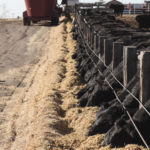
Tag Archives Biotechnology

‘You’re wrong’ is the wrong message
Trying to dictate what products consumers should get or what food companies should supply them is surely a losing tactic

New York Times findings on GM crops disputed
A Times study concludes GM crops don’t yield more than conventional ones, but two Canadian agricultural economists found GM crops are worth billions

CropLife report highlights importance of crop protection and biotechnology
The group says it’s ready to make the case for the value and economic contribution of the industry’s technology to the country

GM cattle could have many benefits
Genetic modification for cattle is under investigation at the federal level

Pulses toward back of research pack
While biotechnology has made big changes to some types of crop production, pulses remain underfunded
Comment: Closing the barn door after the fact
Sudden concern about mergers on the part of politicians is too little, too late

Consolidation won’t reduce innovation: Monsanto
No word yet on whether a Monsanto-Bayer merger will affect canola growers

Canola farmers worried about Bayer-Monsanto merger
The fear is the new company’s market power will result in higher seed prices and less innovation unless regulators order some divestiture of assets

Dolly sheep clones reach ripe old age
The study results are reassuring after Dolly’s early death





